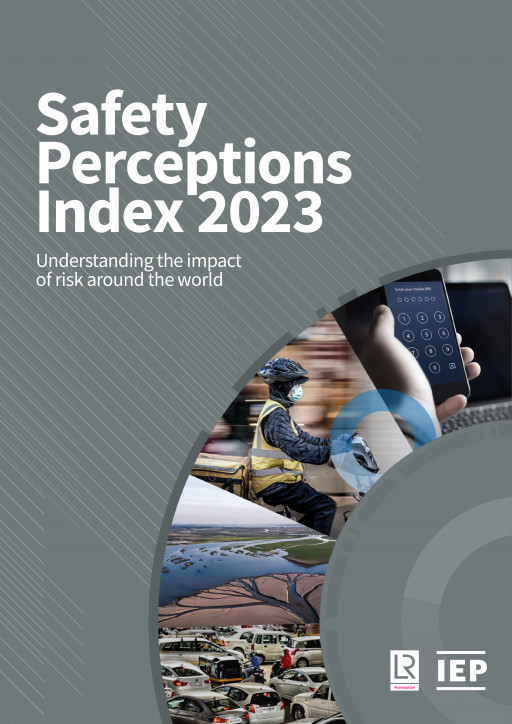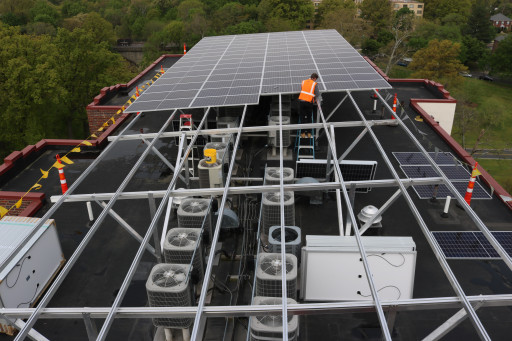Earthling Security Enables Finvi to Achieve FedRAMP P-ATO
 RESTON, Va., February 28, 2023 (Newswire.com)
RESTON, Va., February 28, 2023 (Newswire.com)
–
Earthling Security, LLC is proud to announce that, by partnering with the Finvi (Formerly Ontario System…
AmericanGambling Announces Launch and Availability of Gambling Consultations in the USA
 AmericanGambling announced the release of a new website. The platform targets new, passionate, and experienced gamblers, who want to explore US online gaming in a safe, legal and responsible way.
AmericanGambling announced the release of a new website. The platform targets new, passionate, and experienced gamblers, who want to explore US online gaming in a safe, legal and responsible way.
…
KlimaDAO and Silverpine Partner to Expand Carbon Neutral Tokenization of Real World Assets
 KlimaDAO Silverpine PR KlimaDAO Silverpine PR
KlimaDAO Silverpine PR KlimaDAO Silverpine PR
SAN FRANCISCO, February 28, 2023 (Newswire.com)
–
KlimaDAO is an on-chain scaling solution for the Volun…
Powerhouse™ 3.0 Solar Shingles Deliver High-Efficiency Solar Power, Attractive Curb Appeal and Roofing Industry Benefits
 Revere Plastics Systems Powerhouse\u2122 3.0 Solar Shingles
Revere Plastics Systems Powerhouse\u2122 3.0 Solar Shingles
NOVI, Mich., February 24, 2023 (Newswire.com)
–
As U.S. homeowners embrace solar power as …
Lafayette Federal Credit Union Ranks #4 in the J.D. Power 2022 U.S. Consumer Lending Satisfaction Study
 LFCU Logo LFCU Logo
LFCU Logo LFCU Logo
ROCKVILLE, Md., February 24, 2023 (Newswire.com)
–
Lafayette Federal Credit Union received a #4 ranking among personal loan lender…
Icelandic Manufacturer Drives Environmentalism With New Wool Technology
 Icelanders have had a close connection with nature ever since the earliest settlements at the end of the ninth century. That connection has been kindled anew by the manufacturer and retailer Icewear. Their new outdoor …
Icelanders have had a close connection with nature ever since the earliest settlements at the end of the ninth century. That connection has been kindled anew by the manufacturer and retailer Icewear. Their new outdoor …
Institute for Economics & Peace, Lloyds Register Foundation Release Safety Perceptions Index 2023: Severe Weather & Rising Anxiety Lead Global Risk Poll
 The second edition of the Safety Perceptions Index finds an increase in harm from severe weather and rising global anxieties associated with the state of employment, economic conditions, and ‘ambiguous risk.’ Uzbekistan leads the Index while Mali falls to last place, primarily driven by internal conflict and terrorism.
The second edition of the Safety Perceptions Index finds an increase in harm from severe weather and rising global anxieties associated with the state of employment, economic conditions, and ‘ambiguous risk.’ Uzbekistan leads the Index while Mali falls to last place, primarily driven by internal conflict and terrorism.

Safety Perceptions Index 2023
Understanding the impact of risk around the world
LONDON, England, February 23, 2023 (Newswire.com)
–
Today marks the launch of the second edition of the Safety Perceptions Index (SPI), a collaboration between Lloyd’s Register Foundation, a global safety charity, and the Institute for Economics & Peace, an international think tank.
Key results
- There was a 5-percentage point increase in the number of people saying they felt less safe in 2021.
- There has been a global rise in ‘ambiguous risk,’ the feeling that people are at risk but are unsure from what.
- Both worry and the experience of harm in relation to food and water improved; however, low-income and conflict-ridden countries have recorded substantial deteriorations.
- In 2021, more people reported experiencing harm from severe weather than in 2019, but levels of worry decreased.
- Anxieties associated with employment and economic conditions rose between 2019 and 2021, likely caused by the economic downturn.
- The country most impacted in the SPI was Mali, which has experienced two recent coups and has been racked by multiple violent conflicts.
- Counterintuitively, the overall SPI score improved following the onset of COVID-19, likely due in part to COVID-related lockdowns and the restriction on movement globally.
The second Safety Perceptions Index report, released today, provides a comprehensive measure of global perceptions of safety. The report is based on two iterations of the Lloyd’s Register Foundation World Risk Poll, the first conducted in 2019 and the second in 2021, and provides commentary, trends, and insights into these two sets of data.
In 2021, the SPI improved globally across two domains – food and water and violent crime – and deteriorated in two – severe weather and mental health. Uzbekistan recorded the best overall score, while Mali recorded the worst overall score. Mali is currently suffering from a violent internal conflict, has high rates of terrorism, and saw its government overthrown in successful coups in both 2020 and 2021.
Sub-Saharan African countries are the most risk-impacted in the world. Many countries in the region are among those with the highest worry rates globally and are represented in the top five most impacted countries for food and water, mental health, and workplace safety.
The only domain in which the average levels of both worry and experience of harm increased was the mental health domain, likely due in part to the proliferation of COVID-19 lockdowns and other disruptions to regular social life. The World Health Organisation estimates that COVID-19 led to a 25% increase in rates of anxiety and depression, with women and young people hit the hardest.
“The Safety Perceptions Index 2023 report digs deeper into the World Risk Poll data to provide us with valuable insights into how perceptions of safety differ across countries, and how the various aspects of risk are connected,” said Sarah Cumbers, Director of Evidence & Insight at Lloyd’s Register Foundation. “The report will be useful in the decades ahead as it will provide insight into the shifts in perception that might be associated with any future pandemics or other global shocks, and how to manage those changes.”
Safety perceptions – the shifting risk landscape
Over half of the countries surveyed recorded substantial deteriorations in feelings of safety compared to five years earlier. In Myanmar, 11% of the population reported feeling less safe in 2019, rising to 59% in 2021. In Vietnam, 37% of the population also reported feeling less safe, an increase of 26 percentage points from 2019. However, many countries improved. In Sweden, the percentage of the population feeling more safe rose from 12% in 2019 to 32% in 2021. Zambia recorded a notable increase, rising from 19% to 37%.
Rise in ‘ambiguous risk’
The 2023 SPI report finds a rise in ‘ambiguous risk.’ This refers to people’s feeling that they are at risk, but are unsure from what. The rise in ambiguous risk can be seen in the responses to the World Risk Poll question on the greatest perceived threat in people’s daily lives. Between 2019 and 2021, the largest changes in response rates were for those saying that no risk existed in their lives, which fell by half, and those saying they did not know what their greatest risk was, which nearly doubled.
COVID-19 and risk
The 2023 SPI highlights the changing dynamics of risk that accompanied the onset of the COVID-19 pandemic. The world is less certain about its future than at any time since the Cold War. The pandemic continues to impact every corner of the globe, inflation is rising, Russia’s war in Ukraine has disrupted international relations, and economic growth has slowed and, in some cases, reversed. As COVID-19 only ranked as the fourth most cited threat to people’s daily safety, these findings suggest that it was the societal experience of the pandemic – more than the virus itself – that most impacted worries and experiences of risk.
Regional & country findings
- Uzbekistan was the highest-scoring country overall and, on average, the Russia, Eastern Europe and Central Asia region had the best scores globally. This is a noteworthy result, given that countries in the region do not typically rank highly in other measures of security and development.
- The worst-scoring country in the 2023 SPI was Mali, which has experienced two recent coups and has been racked by multiple violent conflicts.
- On average, sub-Saharan Africa was the worst-scoring region in the SPI; all five countries with the worst scores are in the region, with four of them currently suffering from violent conflict.
For more information, visit visionofhumanity.org and https://wrp.lrfoundation.org.uk.
ENDS
NOTES TO EDITORS
The SPI report is available at: https://www.visionofhumanity.org/wp-content/uploads/2023/02/SPI-2023-1.pdf
The SPI report focuses on the risks with the potential to cause the most disruption and have the most significant impact on the lives of people across the world. It measures two themes: worry about harm and recent experience of serious harm, analysing them across five domains: food and water, violent crime, severe weather, mental health, and workplace safety. These themes and domains are combined into a composite score which reflects perceptions of safety by country and region. The survey was completed prior to the Russian invasion of Ukraine, which has significantly stressed global food supply chains.
About Lloyd’s Register Foundation and the World Risk Poll
Lloyd’s Register Foundation is an independent global safety charity that supports research, innovation, and education to make the world a safer place. Its mission is to use the best evidence and insight, such as the World Risk Poll, to help the global community focus on tackling the world’s most pressing safety and risk challenges. The Lloyd’s Register Foundation World Risk Poll is the first global study of worry about, and harm from, risks to people’s safety.
lrfoundation.org.uk | https://wrp.lrfoundation.org.uk
About the Institute for Economics & Peace
The Institute for Economics and Peace (IEP) is the world’s leading think tank dedicated to developing metrics to analyse peace and to quantify its economic value. It does this by developing global and national indices, calculating the economic cost of violence, analysing country-level risk, and understanding Positive Peace. The research is used extensively by governments, academic institutions, think tanks, non-governmental organisations and by intergovernmental institutions such as the OECD, The Commonwealth Secretariat, the World Bank, and the United Nations.
Related Links
Contact Information:
Darren Lewis
Global Marketing & Communication Director
+61481302783
Related Files
SPI 2023 (2).pdf
Original Source:
Institute for Economics & Peace, Lloyds Register Foundation Release Safety Perceptions Index 2023: Severe Weather & Rising Anxiety Lead Global Risk Poll
Universal Renewables Announces Territory Expansion, Offering Rooftop Solar Solutions in the Northeast
 Solar Solutions for Crowded Urban Rooftops Now Available in the Northeast Region
Solar Solutions for Crowded Urban Rooftops Now Available in the Northeast Region

Elevated Solar Racking System
Universal Renewables’ elevated canopy solution increases the available area allowed for solar panels on crowded urban rooftops.
BOSTON, February 22, 2023 (Newswire.com)
–
Universal Renewables, an innovator in solar power solutions, announced today the expansion of its elevated rooftop racking solutions to commercial buildings in Massachusetts, New Jersey, and New York. Universal Renewable’s revolutionary canopy systems can advance and accelerate clean energy development by providing a solution that increases the available area allowed for solar panels on crowded urban rooftops.
Headquartered in Washington, DC, Universal Renewables offers building-specific design solutions that have demonstrated the ability to increase installed capacity by over 500%. The patented technology is designed to withstand wind loads of 135 mph. It is ideal for commercial rooftops where HVAC fans, plumbing vents, skylights, and other rooftop fixtures hinder traditional solar technologies such as flush-mount and ballasted systems.
“We are pleased to announce our expansion into the Northeast, especially the Boston and New York metropolitan markets, where we see a lot of opportunity to help businesses and municipalities realize their energy performance and conservation goals,” says Mark Ballantine, President and Founder of Universal Renewables. “Until now, rooftop solar has not been economically viable for many commercial buildings, and in other cases, not physically possible without replacing entire rooftops. Not only does UR’s elevated racking system increase the roof’s capacity for solar panels, but it also means that you can access your roof and rooftop fixtures, like HVAC equipment, for servicing without disrupting a single solar panel.”
Universal Renewables has over 45 rooftop solar installations in the DC area, with new projects awarded in Boston, New Jersey, and New York City. The elevated solar solution developed for a project in Burlington, Massachusetts, has been approved by permitting authorities and will be under construction by month’s end. For more information, visit www.universalrenewables.com.
Contact Information:
Tory Hanna
VP Business Development & Origination
413-522-7460
Original Source:
Universal Renewables Announces Territory Expansion, Offering Rooftop Solar Solutions in the Northeast
Asplundh Sets Course to Reduce GHG by 2030, With Net-Zero by 2050
The announcement is part of the company’s 2022 Sustainability Report.
WILLOW GROVE, Pa., February 21, 2023 (Newswire.com)
–
Asplundh Tree Expert, LLC announced today a formal commitment to reduce its greenhouse gas (GHG) emissions. The commitment follows the review of Asplundh’s GHG emissions by Schneider Electric, a multinational corporation based in France that provides sustainable consultation services.
Asplundh set a 2030 GHG reduction goal for its operating emissions that is consistent with a 1.5-degree Celsius pathway, as set forth in the Paris Agreement. The company believes this goal is aligned with and will support its utility customers’ carbon footprint reduction initiatives and will help the company maintain leadership as the contractor of choice in vegetation management and utility construction services. Additionally, Asplundh will continue to evaluate and work with suppliers to reduce emissions in its supply chain.
“The company is excited to announce this pledge to realize material reductions in our carbon footprint,” said David Fleischner, Executive Vice President and Chair of the Asplundh Board’s ESG Committee. “Our pledge is just the next step in an ongoing journey to ensure that our safe and cost-efficient solutions remain the most environmentally sustainable in the industry.”
As a leading vegetation management and infrastructure services contractor employing more than 36,000 in the U.S., Canada, Australia and New Zealand, Asplundh has a broad and global reach in supporting international GHG reduction efforts. Based on the data provided by Schneider, the company is confident that it can meet the reduction goals by the end of the decade (2030) and further reduce emissions to net-zero by 2050.
Asplundh also this week released its 2022 Sustainability Report, which further demonstrates the company’s focus on sustainability and its material environmental, social and governance (ESG) issues across its businesses. That report illustrates how Asplundh supports its customers, some of the world’s largest electric utility companies, and offers examples of how it promotes and encourages ESG policies and assessment along the entire utility supply chain.
“Much of our company’s sustainability work has taken place for years. Our safety culture, for example, is a carefully planned and refined approach that has set the industry standard for decades,” said Asplundh ESG Director Megan Fielding. “This report provides a record of the many things we have done successfully in the past and provides a roadmap upon which to build a more sustainable business.”
Contact Information:
Pete Mazzaccaro
Corporate Communications
215-784-4427
Original Source:
Asplundh Sets Course to Reduce GHG by 2030, With Net-Zero by 2050
Gossip Stone TV – Get Ready to See How the Other Half Lives!

 Are you ready for a peek into Hollywood’s glamorous world of celebrity? Then Gossip Stone TV is the place for you! This exciting new channel features exclusive interviews with celebs like Ben Affleck and Matt Damon, Jennifer Lopez, Ryan Reynolds, Emma Stone, and more. Plus, it’s free to watch on Amazon Fire TV, Roku TV […]
Are you ready for a peek into Hollywood’s glamorous world of celebrity? Then Gossip Stone TV is the place for you! This exciting new channel features exclusive interviews with celebs like Ben Affleck and Matt Damon, Jennifer Lopez, Ryan Reynolds, Emma Stone, and more. Plus, it’s free to watch on Amazon Fire TV, Roku TV […]
